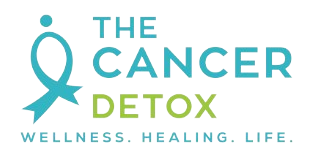7 Nutrition Facts Every Breast Cancer Patient Should Know (Medical Minute #8)
In typical Bedside Manners fashion, we’ve scoured the medical literature and came across this gem of an article specifically for breast cancer patients. It was published in the medical journal Advances in Nutrition, and the authors are nutritionists who reviewed 15 years of medical studies on nutrition in the breast cancer patient.
Below is a convenient summary of their 7 science-backed nutritional recommendations for breast cancer patients. As always, consult your healthcare practitioner and a qualified nutritionist when making dietary changes. See disclaimer below.
#1 – Get expert guidance from a nutrition expert. The nutritionists in this study recommend seeking a qualified nutritionist who can develop individualized nutritional guidelines for you. These days your nutrition can be just as tailored to your body as your chemotherapy. Ensure you get an assessment of your current nutritional status, and nutritional needs before, during and after chemotherapy or radiation.
#2 – Maintain a healthy body weight. Experts agree that your body mass index (BMI) should be between 20 – 24.9 kg/m2. Researchers have shown that women with a higher BMI had an increased risk of breast cancer, and there is some indication keeping weight low reduces your risk of a breast cancer recurrence.
#3 – Your Lifestyle Determines Your Nutritional Needs. Your current dietary habits, eating schedules and activities all play a role in developing nutritional guidelines specific to your needs. You can work with a qualified nutritionist to develop these guidelines and ensure the food you eat supports the life you want to lead.
#4 – Eat the Right Amount of Healthy Fats. Monounsaturated and polyunsaturated fats from plant sources are important. Experts suggest that the amount of fat should be less than 30% fat per day based on your current calorie intake (consult with a qualified nutritionist).
#5 – Eat the Right Amount of Healthy Carbs. Primary whole foods include whole grains (e.g. brown rice, quinoa), fruits and vegetables. The amount should be about 55% per day based on your current calorie intake (consult with a qualified nutritionist). Don’t shy away carbohydrates as they have antioxidants, vitamins, minerals, and other cancer-fighting phyto-chemicals.
#6 – Eat 5 – 9 Servings of Fruits and Vegetables. This ties into #5 above. The authors note that garlic and cruciferous vegetables must be a component of your diet. Read our summary on the anti-cancer benefits of cruciferous vegetables.
#7 – Get adequate protein. Nutrition experts agree that 1.2 – 1.5 g per kilogram per day is ideal for the breast cancer patient. This is all based on your body weight. Here’s a convenient calculator that can help you determine the amount of protein you need.
To Your Best Health,
Dee Grace, PhD
Study Reference: Limon-Miro AT, Lopez-Teros V, Astiazaran-Garcia H. Dietary guidelines for breast cancer patients: a critical review. Advance in Nutrition. 2017;8:613. https://www.ncbi.nlm.nih.gov/pubmed/28710147
DISCLAIMER: This information is for educational and informational purposes only and is not intended as medical advice. It should not be used to diagnose, treat or cure any illness, metabolic disorder, disease or other health problems. You should always consult your licensed health care practitioner before making any health or dietary changes. No information contained here should be relied upon to make a medical diagnosis or determine a treatment for a medical condition.


